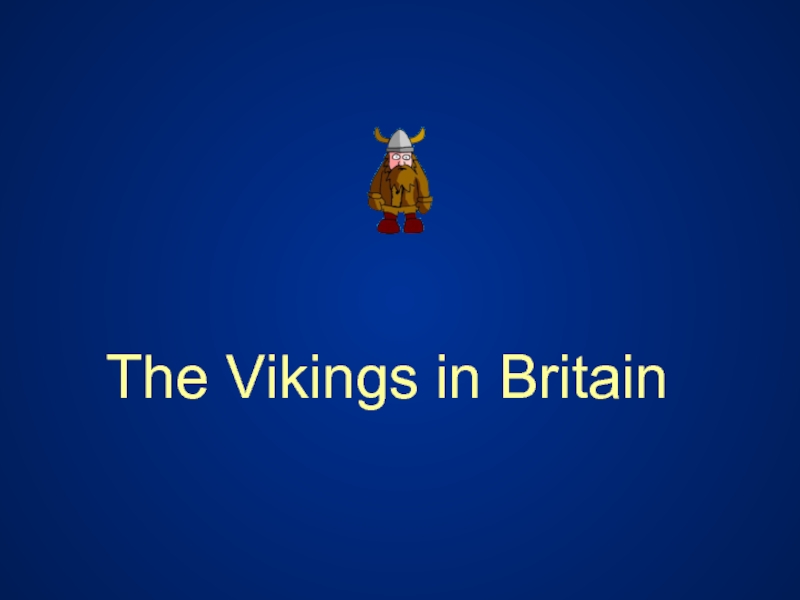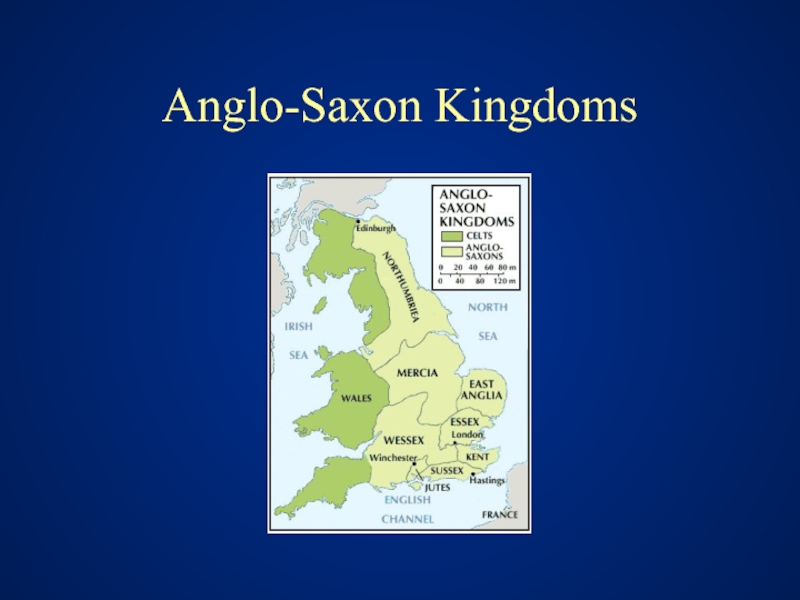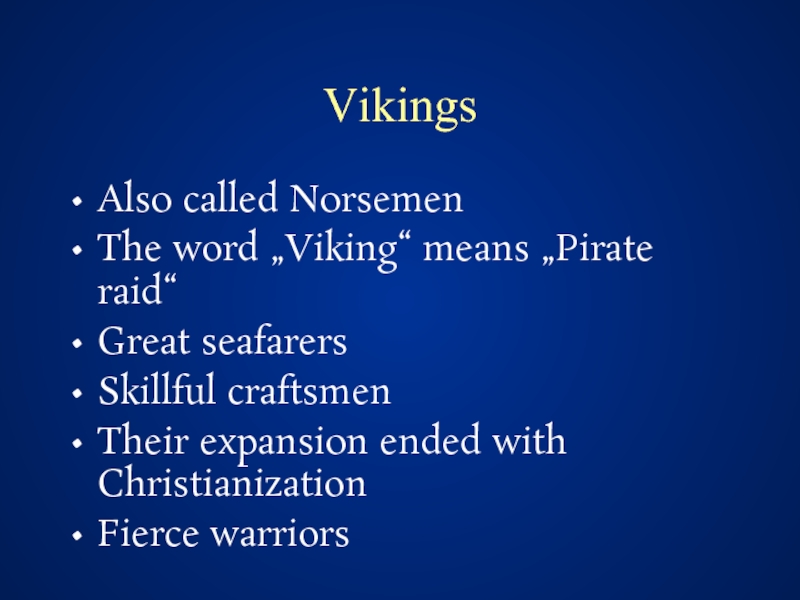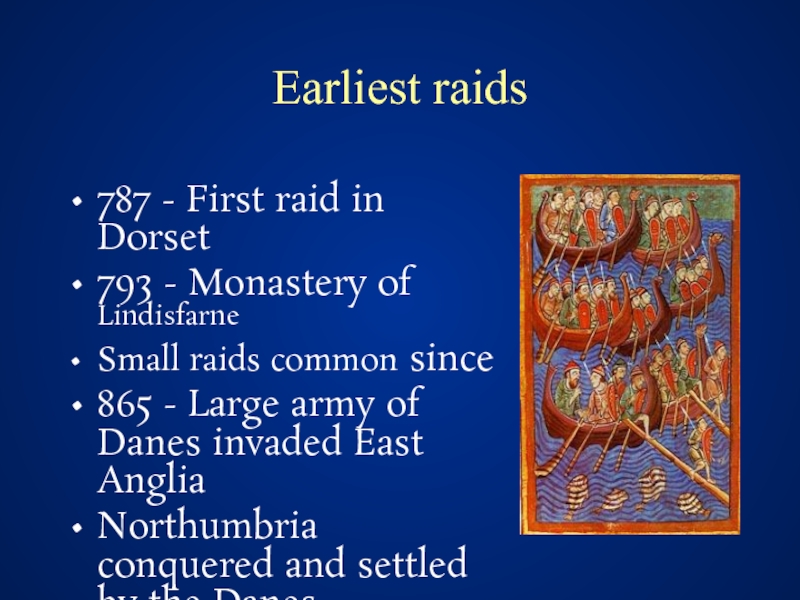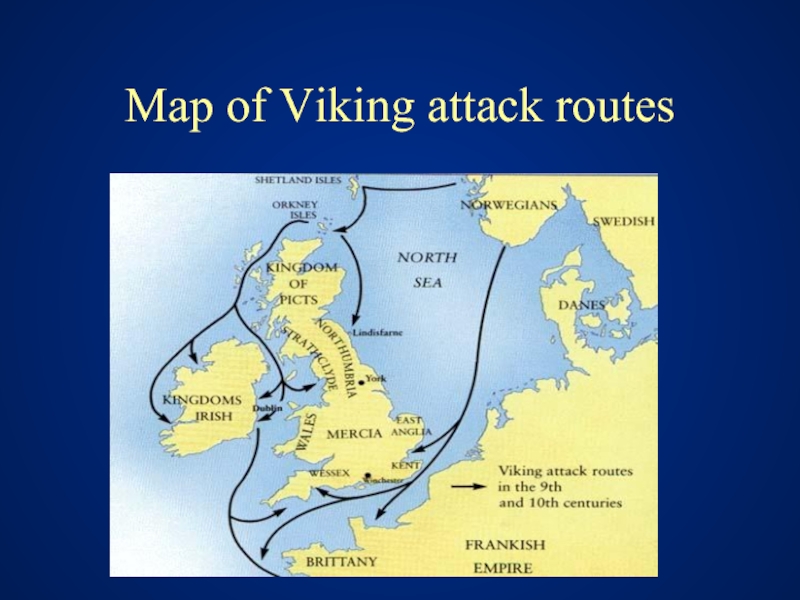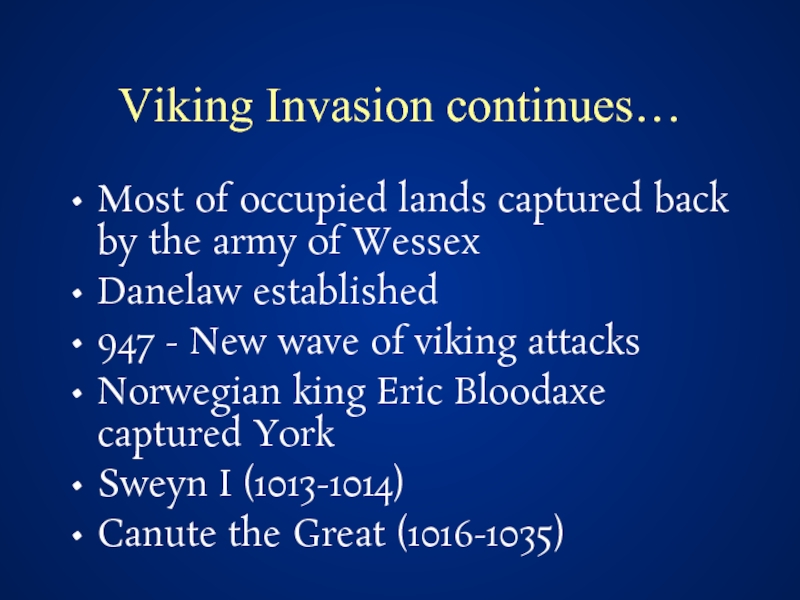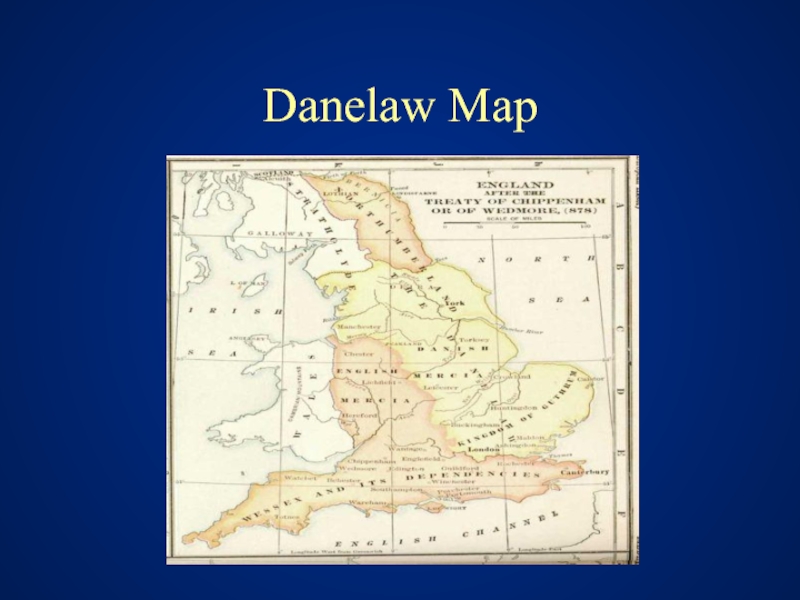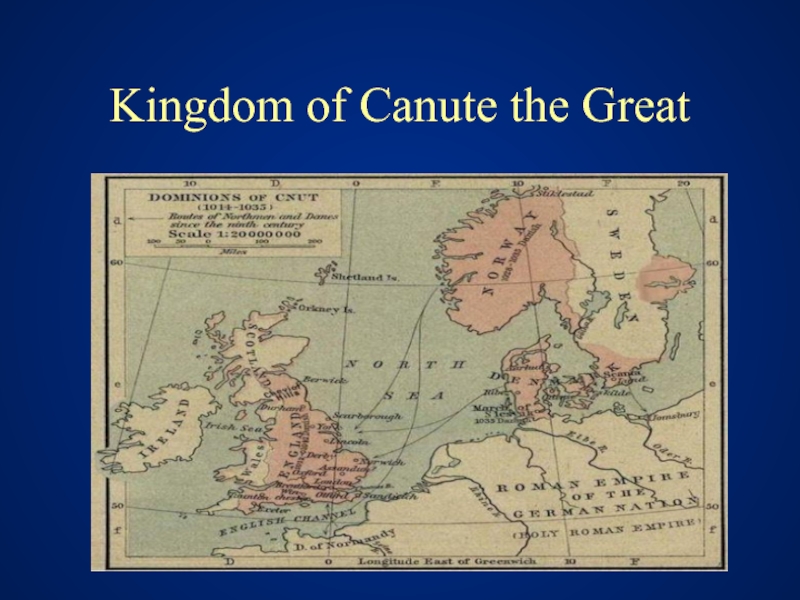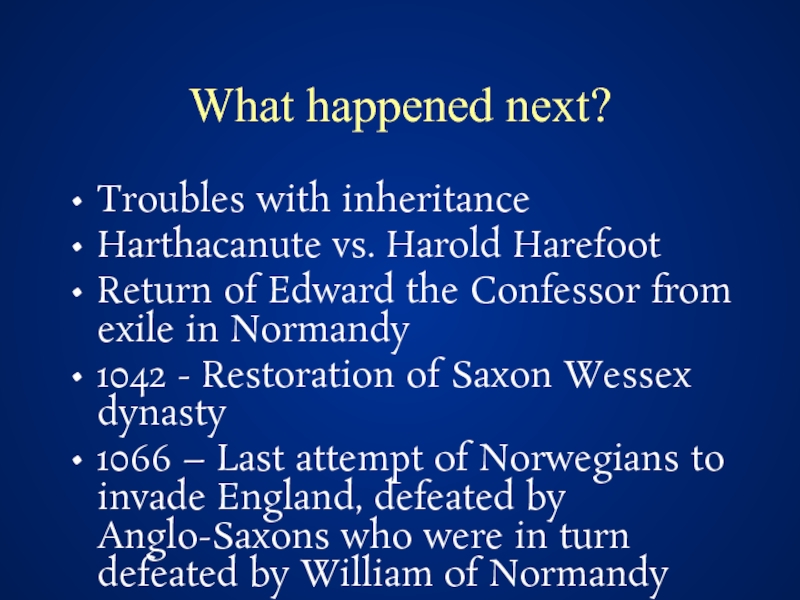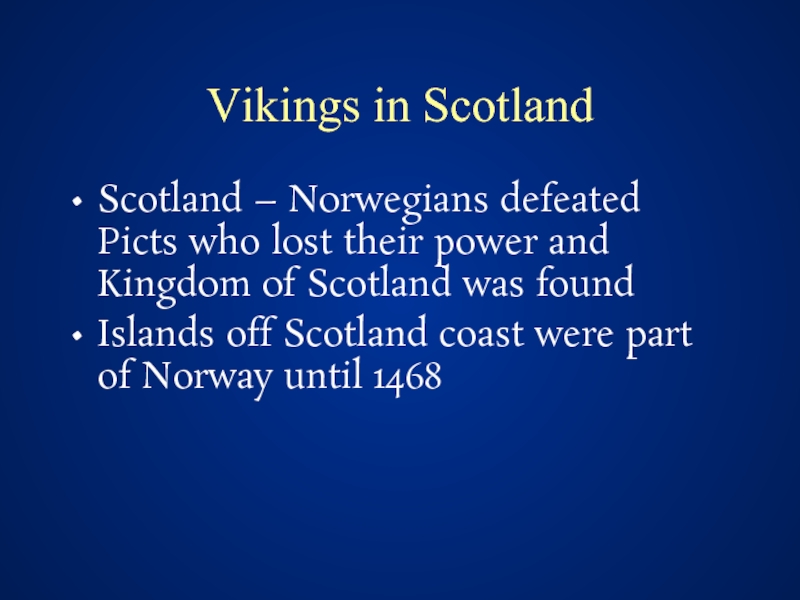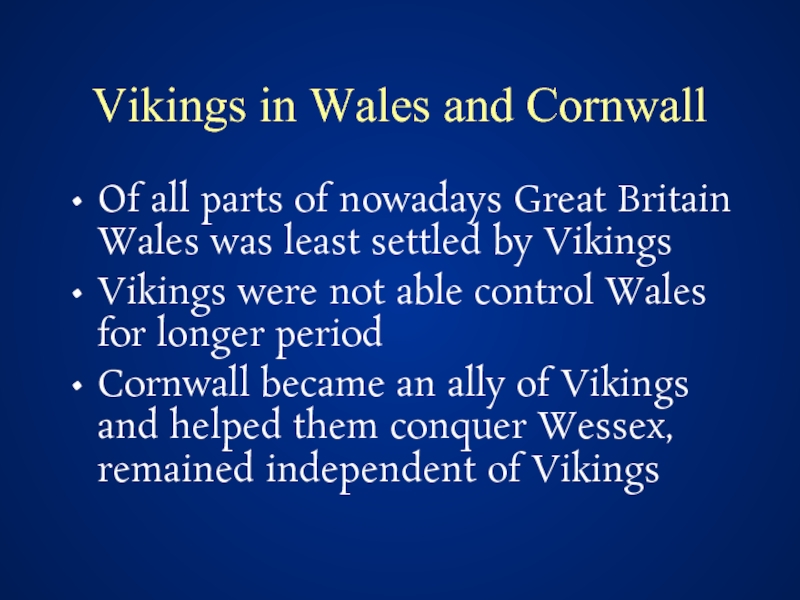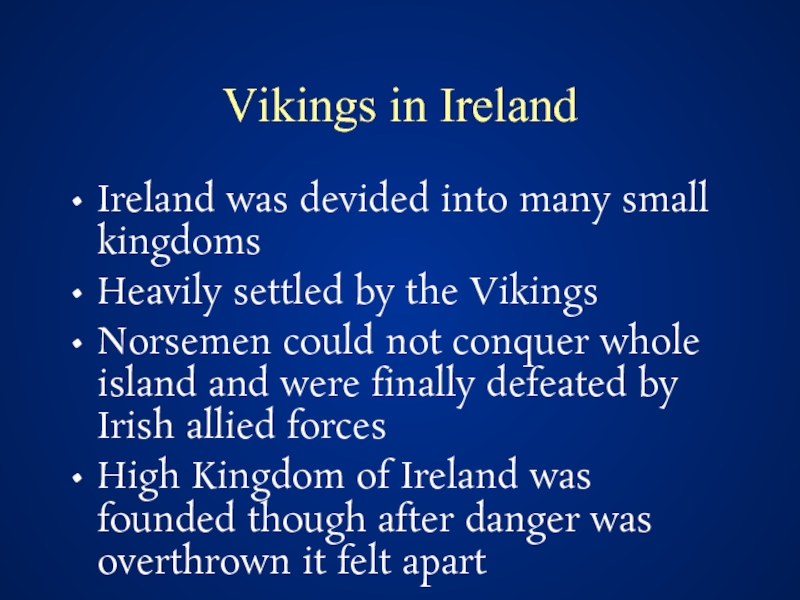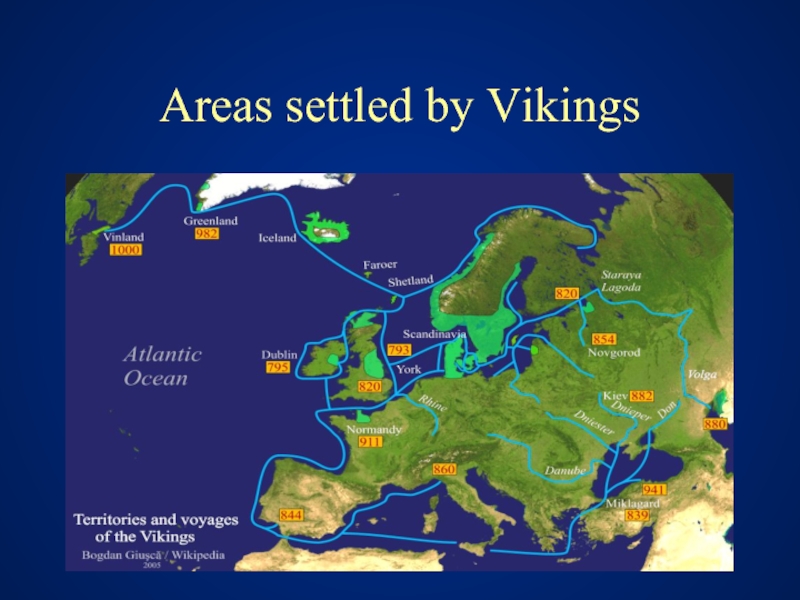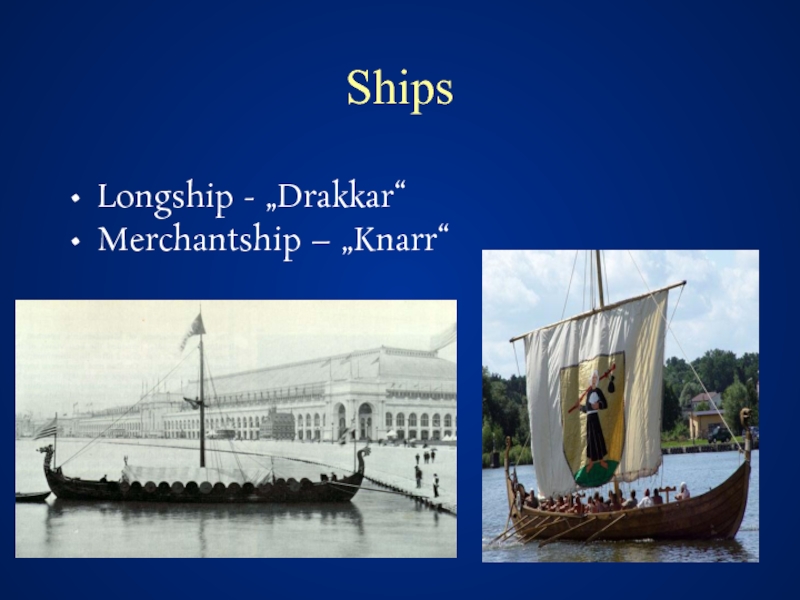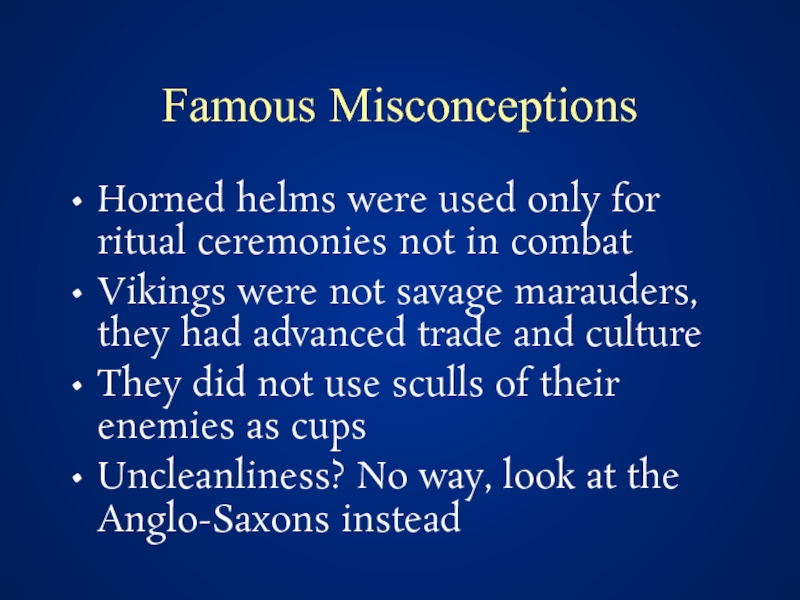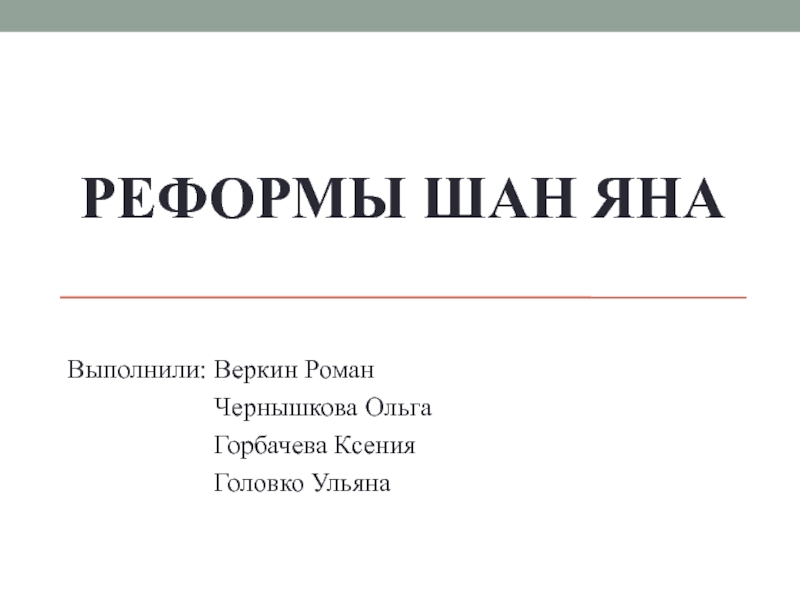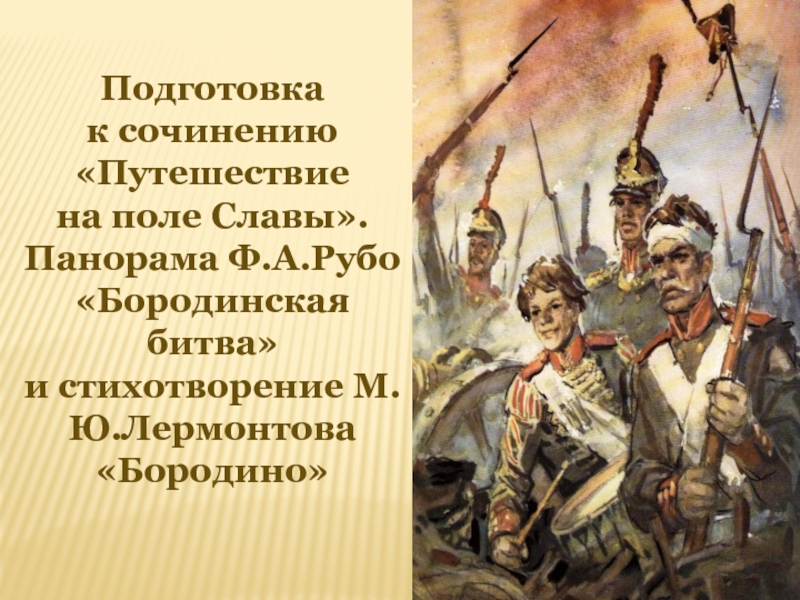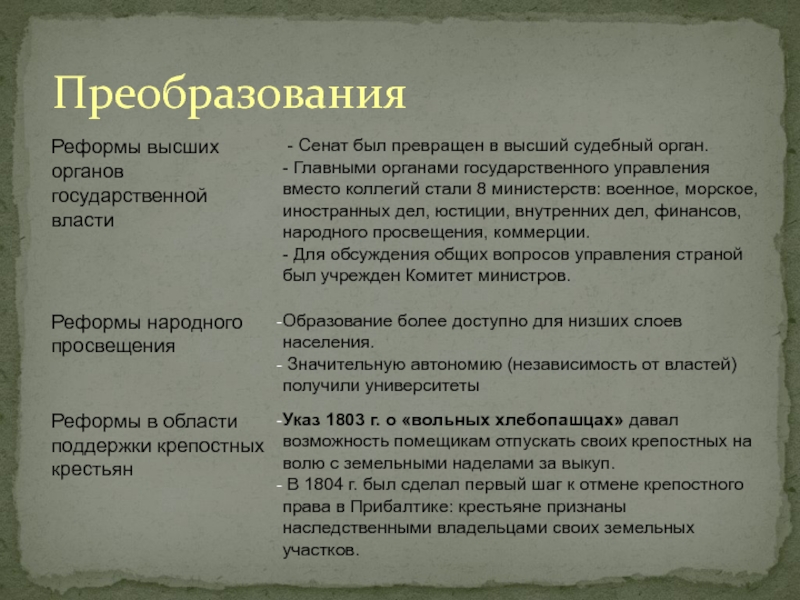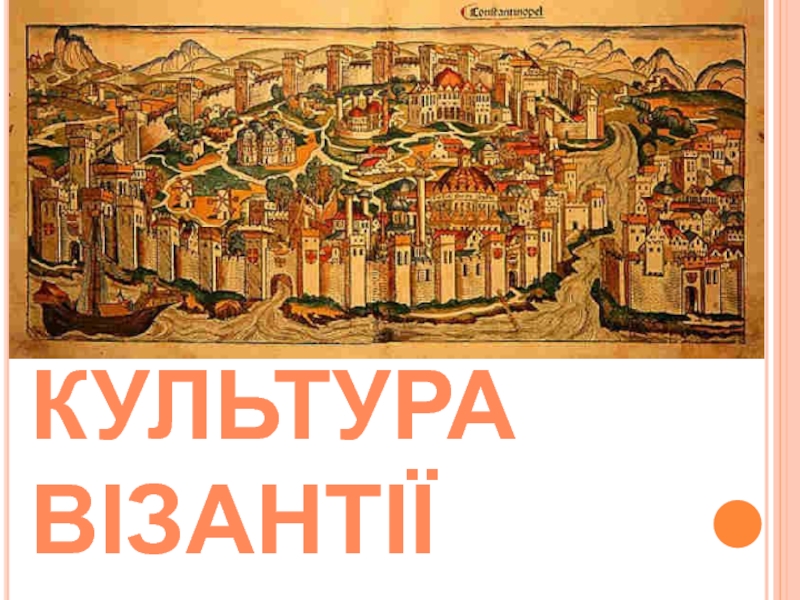- Главная
- Разное
- Дизайн
- Бизнес и предпринимательство
- Аналитика
- Образование
- Развлечения
- Красота и здоровье
- Финансы
- Государство
- Путешествия
- Спорт
- Недвижимость
- Армия
- Графика
- Культурология
- Еда и кулинария
- Лингвистика
- Английский язык
- Астрономия
- Алгебра
- Биология
- География
- Детские презентации
- Информатика
- История
- Литература
- Маркетинг
- Математика
- Медицина
- Менеджмент
- Музыка
- МХК
- Немецкий язык
- ОБЖ
- Обществознание
- Окружающий мир
- Педагогика
- Русский язык
- Технология
- Физика
- Философия
- Химия
- Шаблоны, картинки для презентаций
- Экология
- Экономика
- Юриспруденция
The Vikings in Britain презентация
Содержание
- 1. The Vikings in Britain
- 2. Anglo-Saxon Kingdoms
- 3. Vikings Also called Norsemen The word „Viking“
- 4. Earliest raids 787 - First raid in
- 5. Map of Viking attack routes
- 6. Viking Invasion continues… Most of occupied lands
- 7. Danelaw Map
- 8. Kingdom of Canute the Great
- 9. What happened next? Troubles with inheritance Harthacanute
- 10. Vikings in Scotland Scotland – Norwegians defeated
- 11. Vikings in Wales and Cornwall Of all
- 12. Vikings in Ireland Ireland was devided into
- 13. Areas settled by Vikings
- 14. Ships Longship - „Drakkar“ Merchantship – „Knarr“
- 15. Famous Misconceptions Horned helms were used only
Слайд 3Vikings
Also called Norsemen
The word „Viking“ means „Pirate raid“
Great seafarers
Skillful craftsmen
Their expansion
ended with Christianization
Fierce warriors
Fierce warriors
Слайд 4Earliest raids
787 - First raid in Dorset
793 - Monastery of Lindisfarne
Small
raids common since
865 - Large army of Danes invaded East Anglia
Northumbria conquered and settled by the Danes
Invasion of Wessex repelled by Alfred the Great
865 - Large army of Danes invaded East Anglia
Northumbria conquered and settled by the Danes
Invasion of Wessex repelled by Alfred the Great
Слайд 6Viking Invasion continues…
Most of occupied lands captured back by the army
of Wessex
Danelaw established
947 - New wave of viking attacks
Norwegian king Eric Bloodaxe captured York
Sweyn I (1013-1014)
Canute the Great (1016-1035)
Danelaw established
947 - New wave of viking attacks
Norwegian king Eric Bloodaxe captured York
Sweyn I (1013-1014)
Canute the Great (1016-1035)
Слайд 9What happened next?
Troubles with inheritance
Harthacanute vs. Harold Harefoot
Return of Edward the
Confessor from exile in Normandy
1042 - Restoration of Saxon Wessex dynasty
1066 – Last attempt of Norwegians to invade England, defeated by Anglo-Saxons who were in turn defeated by William of Normandy
1042 - Restoration of Saxon Wessex dynasty
1066 – Last attempt of Norwegians to invade England, defeated by Anglo-Saxons who were in turn defeated by William of Normandy
Слайд 10Vikings in Scotland
Scotland – Norwegians defeated Picts who lost their power
and Kingdom of Scotland was found
Islands off Scotland coast were part of Norway until 1468
Islands off Scotland coast were part of Norway until 1468
Слайд 11Vikings in Wales and Cornwall
Of all parts of nowadays Great Britain
Wales was least settled by Vikings
Vikings were not able control Wales for longer period
Cornwall became an ally of Vikings and helped them conquer Wessex, remained independent of Vikings
Vikings were not able control Wales for longer period
Cornwall became an ally of Vikings and helped them conquer Wessex, remained independent of Vikings
Слайд 12Vikings in Ireland
Ireland was devided into many small kingdoms
Heavily settled by
the Vikings
Norsemen could not conquer whole island and were finally defeated by Irish allied forces
High Kingdom of Ireland was founded though after danger was overthrown it felt apart
Norsemen could not conquer whole island and were finally defeated by Irish allied forces
High Kingdom of Ireland was founded though after danger was overthrown it felt apart
Слайд 15Famous Misconceptions
Horned helms were used only for ritual ceremonies not in
combat
Vikings were not savage marauders, they had advanced trade and culture
They did not use sculls of their enemies as cups
Uncleanliness? No way, look at the Anglo-Saxons instead
Vikings were not savage marauders, they had advanced trade and culture
They did not use sculls of their enemies as cups
Uncleanliness? No way, look at the Anglo-Saxons instead
